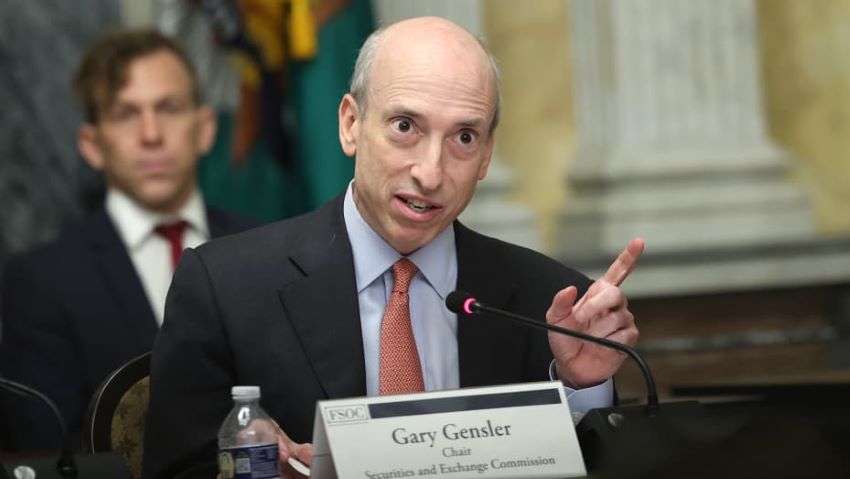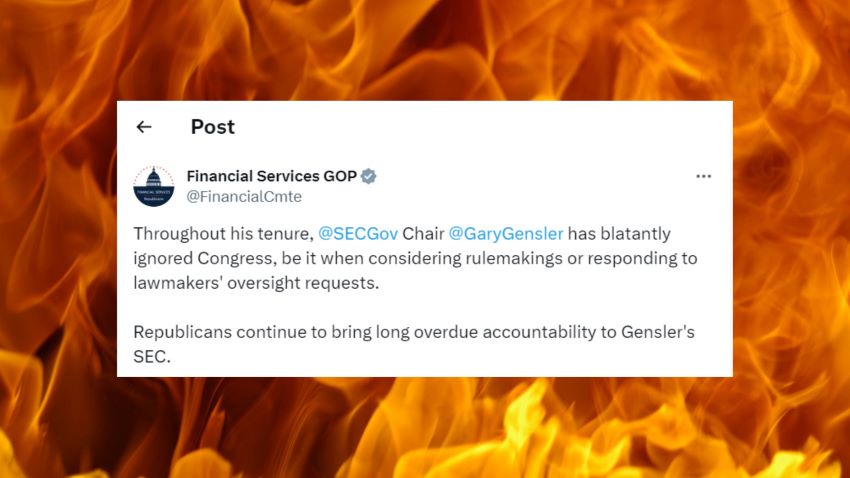
The ongoing battle between the cryptocurrency industry and the US Securities and Exchange Commission (what is usually called SEC) took center stage once again as SEC Chairman Gary Gensler faced congressional scrutiny. In a contentious congressional hearing, Gensler continued to take a tough stance on crypto, raising concerns about the management of digital assets and the regulatory approach toward cryptocurrencies. This article explores the key points and controversies that emerged during the hearing.
You might also be interested: Legal Scholars Support Coinbase in SEC Battle
Table of Contents,
Gensler’s Critique: Mixing Assets Is a Risky Business
During his testimony before the House Financial Services Committee, Gensler reiterated his skepticism about the way crypto firms handle customer assets. He argued that these companies have been careless and risky by commingling assets. In his own words, this practice “is a recipe that’s not led to good results.” Gensler’s concerns revolve around the potential for mismanagement and misuse of customer funds, a sentiment shared by regulatory bodies worldwide.
This stance echoes the broader sentiment in the financial industry, where clear separation and transparency of assets are fundamental principles. Gensler’s message is clear: the crypto sector needs to adopt more robust asset management practices to ensure the safety of user funds.
Silence on Bitcoin ETFs and Regulatory Uncertainty
While Gensler was vocal about asset management practices, he notably avoided addressing one of the most pressing questions in the crypto community – the status of Bitcoin Exchange-Traded Funds (ETFs). The SEC has been grappling with decisions regarding the approval of Bitcoin ETFs, and Gensler’s silence on this matter left many in the crypto space frustrated and uncertain about the future of these investment products.
The lack of clarity on Bitcoin ETFs has been a long-standing issue, with the crypto industry eagerly awaiting regulatory guidance. Gensler’s non-committal stance only adds to the prevailing uncertainty in the market.
Congressional Divisions and SEC Oversight
Much of the hearing veered away from crypto-specific topics, with discussions ranging from the federal government’s potential shutdown to the SEC’s focus on climate and other non-crypto issues. In typical fashion, the hearing highlighted a deep partisan divide, with Democrats generally supporting Gensler and his regulatory approach, while Republicans accused him of disregarding Congress’s authority.

Members of the Financial Services GOP condemned Gensler for what they perceive as a lack of cooperation with Congress, particularly regarding rulemaking and oversight requests. This criticism underscores the broader tension between regulators and lawmakers regarding the balance of power and the extent of regulatory authority.
The Broader Implications for Crypto Regulation
Gensler’s combative stance in the congressional hearing sends a strong message: the SEC is determined to regulate the crypto industry rigorously. While this may bring clarity and protection to investors, it also raises questions about stifling innovation and driving innovation overseas due to regulatory uncertainty.
The ongoing regulatory battles have prompted some crypto firms to relocate to more crypto-friendly jurisdictions, causing potential economic consequences for the United States. Striking the optimal balance between investor protection and creating room for innovation is a challenge that regulators, lawmakers, and the crypto industry must navigate together.
Conclusion: A Continuing Crypto Regulatory Saga
The congressional hearing featuring Gary Gensler served as another chapter in the ongoing saga of crypto regulation in the United States. While Gensler’s critique of asset management practices in the crypto industry has merit, his silence on crucial matters like Bitcoin ETFs leaves stakeholders in a state of uncertainty.
As the crypto industry continues to evolve, the need for clear and consistent regulatory guidelines becomes increasingly evident. Striking a balance between oversight and helpful innovation is a complex task, and finding common ground between regulators, lawmakers, and the crypto community is essential to ensuring the responsible growth of this transformative technology. The crypto world eagerly awaits further developments in this ongoing regulatory drama.



